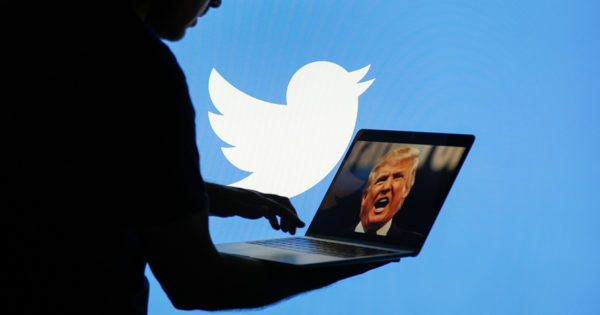
Key insights:
President Trump signed an executive order Thursday to try and limit liability protections long afforded to social platforms, an action that many experts say is on dubious legal footing.
The order comes after two days of tension between the president and Twitter—typically the president’s preferred method of communicating—after the social media company took the unprecedented step to place fact-check labels on two of his tweets related to mail-in ballots. The president has threatened to shut down social platforms for allegedly interfering with the election.
But the president cannot shut down private companies for their political speech, and his executive agencies have almost no control over publishers’ speech.
In retribution for Twitter’s action—which neither removed the misleading tweets nor banned Trump, though Twitter could legally do so—Trump moved to alter a decades-old provision that some have called the “26 words that created the internet.”
Section 230 of the 1996 Communications Decency Act, gives protection to online platforms to regulate content on their websites and removes most liability for what third parties publish (otherwise known as user-generated content).
During the signing ceremony for Trump’s executive order, Attorney General William Barr said the Justice Department is writing proposed legislation on Section 230 but has not finalized anything.
Changes to Section 230 must be made with congressional approval, which is unlikely in a divided Congress.
The executive order instructs the Commerce Department to request that the Federal Communications Commission call a proceeding to review Section 230, which the FCC does not have the power to change. It also instructs the Federal Trade Commission to review political bias on social media platforms as “unfair or deceptive” business practices. Neither government entity can discriminate based on political speech, according to legal experts.
The executive order also recommends that federal agencies withdraw or scale back advertising on platforms that display political bias. After that, the DOJ will “assess whether any online platforms are problematic vehicles for government speech due to viewpoint discrimination, deception to consumers, or other bad practices,” the order states. While the government is allowed to spend money as it chooses, Twitter is also allowed to moderate content on its platform as it chooses.
A spokesperson for Twitter declined to comment on the executive order, but CEO Jack Dorsey tweeted Wednesday night, “Fact check: there is someone ultimately accountable for our actions as a company, and that’s me.” He also retweeted a New York Times reporter who suggested everyone actually read Section 230.
The ‘techlash’ storm was already brewing in D.C.
As the “techlash” in Washington has escalated in recent years—on issues related to antitrust, content moderation, human rights, misinformation and more—some think tanks and lawmakers have already begun taking another, legal look at Section 230 protections and are reconsidering the value of the provision nearly 25 years after it was passed.
One such consideration would be to create incentives for companies that remove child pornography and other abusive and illegal content under the The Eliminating Abusive and Rampant Neglect of Interactive Technologies, or EARN IT, Act introduced by Sens. Richard Blumenthal, D-Conn., Lindsey Graham, R-S.C., and others.
Another bill from Sen. Josh Hawley, R-Mo., an ardent critic of Silicon Valley, would make the protections conditional on platforms performing “content moderation that is politically neutral,” a stipulation that many see as an unconstitutional viewpoint-based regulation.
Sen. Ron Wyden, D-Ore.,, who co-authored Section 230, maintains that removing these protections would hurt startups rather than large corporations that can afford the legal fees. “The biggest tech companies have enough lawyers and lobbyists to survive virtually any regulation Congress can concoct,” Wyden wrote in a Washington Post op-ed in February.
https://www.adweek.com/digital/trump-wants-to-roll-back-protections-for-social-media-companies-but-legal-questions-remain/

